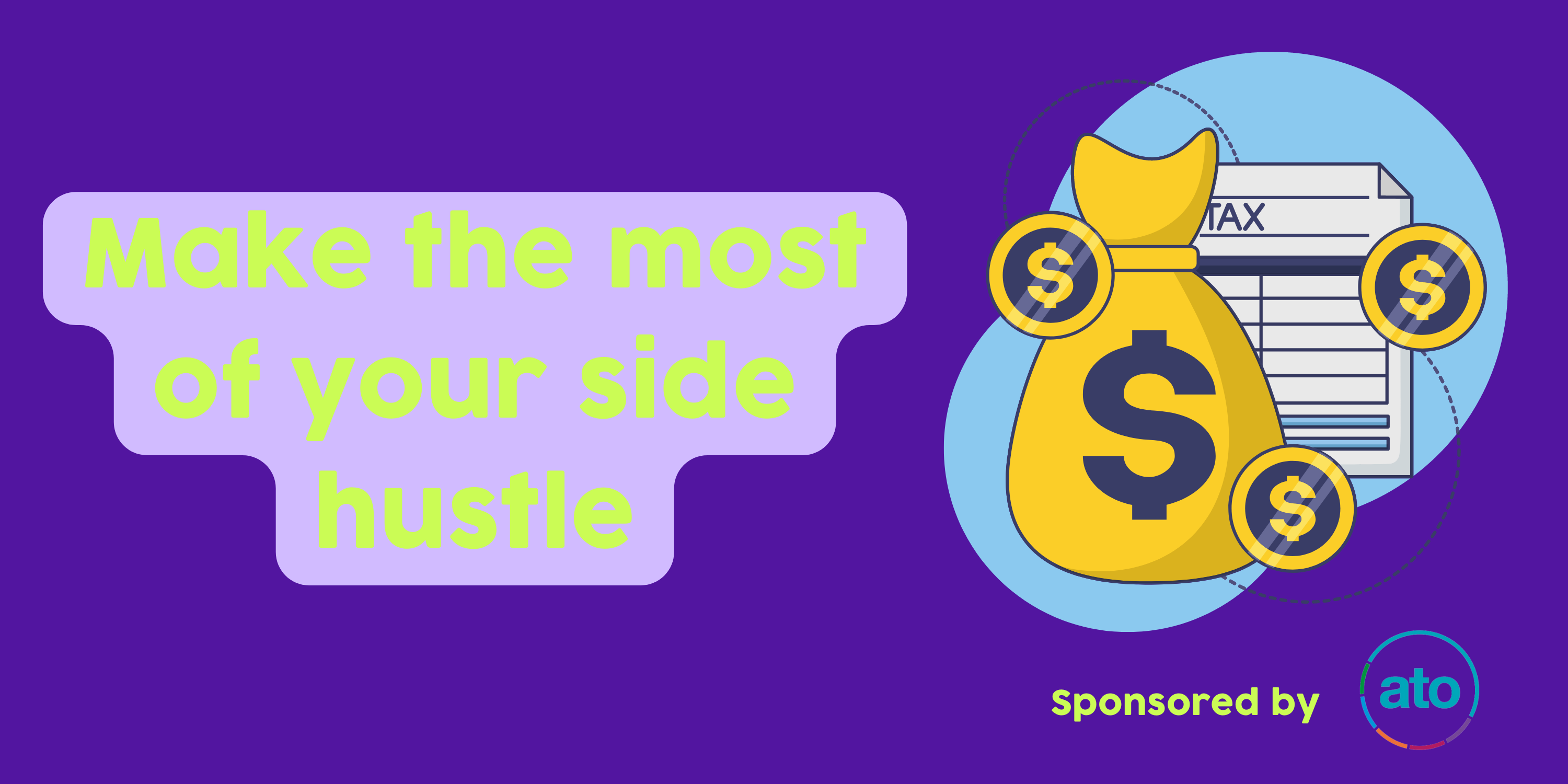Make the most of your side hustle
Apr 20, 2023

During the pandemic, many turned to side hustles to make some extra cash. With more time at home to work on our hobbies and interests (sourdough anyone?) the opportunity to start making income was there!
Are you in business?
Extra money = amazing. Unplanned tax debt = not so amazing! One of the biggest things you need to know when your side hustle is earning you cash is if you are in business.
There’s no firm rule around this, but the ATO has information available to help you work out if your side hustle is a business. For example:
- You are intending to be in business and make a profit
- You do repeated and continuous activities
- Your activities are planned, organised and carried out in a business like manner
Did you move your workouts online during the lockdowns and start to sell personal training plans to
your followers? It could be a business. Sharing make up hacks on social media and getting some brand deals or products as gifts? You might need to declare them.
Posting cute pics of your cat for your friends to see and love? Probably not a business, unless you start to get those sweet, sweet pet endorsement deals! Knowing whether you’re in business, and what tax, super or registration obligations you have, can help make the most of the income you’re earning. Remember you can only claim deductions if they relate to earning your income, you cannot claim deductions for personal expenses.
You’re the boss, now what?
When you’re setting up a business it’s important to know what business structure you want to have, as this defines who owns and operates a business and affects your tax and registration requirements.
There are four main types - sole trader, partnership, company and trust. A sole trader is an individual running a business. It is considered the easiest and cheapest business structure to run.
These are people who either work for someone else and run their business on the side (aka, the side hustle!), or they run their own business full time. Sole traders can also have employees – something to consider for when your business goes viral! Sole traders pay tax at the individual rates of tax and include business income on their individual tax return. All their income (including any salary or wages they receive from both their regular job and side hustle) is calculated at tax time and is used to determine how much tax they pay.
Sole traders may also be entitled to some concessions which can help reduce the rate of tax paid, while still being eligible for the income tax free threshold.
Can you afford to have a side hustle?
We all know the point of a side hustle is to earn extra income, but with that extra income comes extra responsibilities! And not all side hustles are earning cold hard cash – if you’re an influencer, you may receive goods like clothing, make up, handbags– all of this is considered income, and you need to pay tax on it even if it is called a gift.
You also need to include the value of these when working out your GST turnover, as once you reach $75k, you’ll need to register for GST. It’s important you make sure you can afford the taxes before accepting the products (sob!)
The aim of business is to be profitable so it’s important you don’t start off with a debt trying to make money. Most new businesses have start-up costs – the good news is, these may be deductible. Being prepared and having money set aside to cover these costs will help you get your business set up for success from the start.
Unlike your salary and wages, tax is not withheld from the income you earn as a sole trader, so you need to budget for this. You may be entered into pay as you go (PAYG) instalments, where you’ll pay the tax on your sole trader income in regular instalments throughout the year. This helps to avoid that big bill when you lodge your tax return.
If you’re earning salary and wages, plus sole trader income, both of these things will impact your payments for Medicare levy and income contingent loans - hello study loan (aka Fee-HELP!). It’s important to remember this – because if you earn enough to put you in a higher tax bracket, then you may be paying more tax.
Top tips to make the side hustle work for you:
1. Cash flow is king – make sure you’re making enough to cover all your expenses and are keeping track of it!
2. Receipts are elite – not only is it a legal requirement to keep records, but it also helps you know exactly where your business is at. Using a digital record keeping system makes it easy for you to meet your obligations and engage with us when it’s convenient to you.
3. Use those networks and treat your business like your dating life – you’re gonna ask the experts (your besties) for advice, so make sure you ask the tax and business experts for their guidance! It might cost you a bit upfront, but their advice could save you money down the track.


